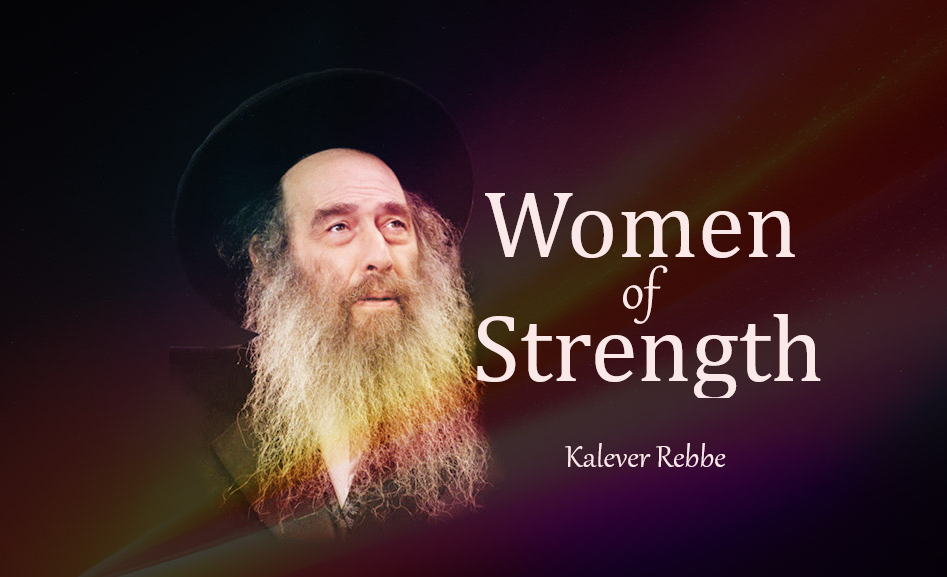
Upstairs/Downstairs
Is separate seating in synagogue archaic and irrelevant? Can separate seating really be regarded as non-egalitarian segregation that should be eliminated?

Regular synagogue attendance has become a routine part of my life over the past few years. This began rather gradually with an occasional Shabbat attendance and over the months and years has gradually increased to nearly weekly attendance. Although initially I found the service difficult to understand and somewhat boring, I was fascinated to imagine that I might be hearing the same tunes and prayers that my grandfather and great grandfather heard and prayed perhaps extending back to Turkey and even Spain. This connection to my past was something that I had never seriously considered, however it gave me a sense that I was experiencing something greater than my self.
Eventually I began taking the services and Judaism somewhat more seriously, however I felt that there was one obviously large flaw. Growing up in the 60’s and 70’s it was obvious to me that archaic practice of the separate seating of men and women was an old fashioned custom, most likely based on superstition or worse yet, sexism. I was certain that eventually this non-egalitarian segregation had to be eliminated. After all, this is modern America and we are an enlightened people.
A funny thing happened however as I began to learn more about prayer, Judaism, and the psychology of men and women. I realized that there may be a valuable wisdom behind this separation. To understand this  wisdom however, it is necessary to take a few steps back and examine the basics of Judaism, prayer, and the differences between men and women.
wisdom however, it is necessary to take a few steps back and examine the basics of Judaism, prayer, and the differences between men and women.
Unfortunately, most of us develop our knowledge and understanding of Judaism and prayer as children, squirming in our seats in Hebrew school. As adults we never seriously consider whether or not there may be a deeper understanding of these concepts. If our knowledge of any complex idea was based only upon what we were taught in elementary school, it would be severely limited. Imagine the difference in the depth of understanding between college level calculus and the arithmetic that we learned in elementary school. This can be compared to how little most of us know about even basic Judaism, let alone the higher level understanding of its philosophy and practice. I myself stopped considering Judaism seriously shortly after my Bar Mitzvah when I was no longer required to attend Hebrew school.
When I was a child and people asked the Rabbi why women sat in the balcony, the answer usually given was that women sat above men because, in Judaism, women are elevated above men in their spiritual nature. Usually the audience would chuckle a bit and assume that the Rabbi was just trying to avoid the topic. Most of us however never felt that we were given an adequate explanation, since a difference such as this must surely reflect a negative view of women in Judaism. As it turns out this Rabbinic explanation was probably correct.
Several years ago Time magazine headlined a cover story stating “Men and Women are Different”, and that they may have actually been born that way. This rediscovery has not come as a surprise to many baby boomer parents who have noted very real differences almost from birth between their baby boys and girls. Pop psychology based upon political correctness taught us that the behavioral differences between boys and girls only occurred because of socialization and societal pressure. These views changed rapidly, however, as their little boys did not choose the Barbies, and the girls for the most part did not choose to play with the toy guns and trucks.
Many psychologists and physiologists have confirmed numerous differences between men and women beyond the obvious. It appears that men are much more visually stimulated than women especially when it concerns the opposite sex. This helps explain why there are hundreds of sexually oriented magazines and websites for men compared to few or none for women. Author and lecturer, Dennis Prager, in an excellent discussion of the differences between men and women makes this previous point well and further elaborates on these differences. Men in general are more predisposed to seeking greater and greater diversity in sexual partners and women greater and greater intimacy with a single partner, according to Prager. Innate behavioral sex differences are also confirmed in a recent book by Dr. Steven Rhoads entitled “Taking Sex Differences Seriously.”
Socializing young men into descent citizens is a major concern for most societies. Prisons are filled with young men convicted of rape, murder, and other violent crimes. Although women are also susceptible, the ratio of men to women in this area is quite large, and this seems to hold true throughout time and societies. Judaism recognizes these differences and addresses this need to socialize men into good neighbors and citizens by placing specific religious obligations (mitzvot) on men which may be different than those placed upon women. This will be discussed further.
Jews are described as the “chosen people”, however few of us have given serious thought as to what this really means. Many of us have a subtle feeling that being chosen is a good thing, but really don’t know what we were chosen to do. As has been aptly stated, “Jews are messengers who have forgotten their message.” So what does this “choseness” actually mean?
In the Bible, Jews are instructed to become a Holy Nation and a Kingdom of Priests. One definition of holy is to be separate from the ordinary. In terms of human behavior, this involves striving to act differently from ordinary man, and to behave in a sense more G-d like. In our prayers we differentiate those attributes of G-d that we are trying to emulate, such as acting compassionate, forgiving, loving, and just, among others. Becoming holy involves emulating these behaviors. However we are not just told to be a holy people, we are told to be a Kingdom of priests.
We know that in Judaism the Kohanim are the priests to the Jewish people. Priests not only had a role in performing rituals in the temple, but were intimately involved in teaching Jews how to be a holy people. Obviously we are not all Kohanim, so when we are instructed to be a Kingdom of priests, this implies that just as our Kohanim taught the Jewish people, we are to act in a sense as teachers to the rest of the world both by example and instruction. This then is one primary aspect of being chosen, that is, to teach the world about G-d and his demand for ethical behavior. In the memorable words of Dan Akroyd, “We’re on a mission from G-d”, however our mission is to help repair the world as a partner with G-d, and to bring the world the knowledge of G-d’s desire for us to act ethically. If as Jews we fail in our mission, we will live with the consequences, living in a world without G-dly ethics. We have seen the existence of such societies in Nazi Germany, the Soviet Union, and many other nations. In this light then our “choseness” should not be taken lightly.
If we are to teach the world as a Holy people, we must first improve ourselves as individuals. The obligation of prayer can, if done properly, assist individuals in self improvement, spiritually and psychologically. When most of us think of prayer we imagine in our child’s-eye view of Judaism that we are simply making requests to a sort of Santa Claus in the sky. If we pray hard enough or if we’re lucky enough, our requests will be granted. However to truly understand the meaning and purpose of prayer we must first examine one of the Hebrew words for prayer, “lehitpalel“. This word for prayer actually means to judge oneself. But what does judging oneself have to do with prayer?
When the Talmud speaks of prayer it is really talking about the Amidah or silent meditation. This is the portion of the service where everyone stands, facing the east, silently mouthing the words as they were written by the sages of the second temple era. Much of the Amidah describes those attributes that we usually associate with G-d, such as being holy, compassionate, healing the sick, forgiving and many more. Judging ourselves then involves comparing our own traits and behaviors with those that we attribute to G-d to see how we measure up. If we are found deficient we should plan ways to improve our character.
Rabbi Aryeh Kaplan in his fascinating book “Jewish Meditation” writes that the Amidah was originally intended to be said as a true meditation, with the individual concentrating on each word or phrase. The Talmud describes how the early sages would frequently take one hour to pray the Amidah and would do so in a meditative fashion according to Rabbi Kaplan. When said as a meditation, Kaplan believes that prayer, and specifically the Amidah, can have life changing effects. As Rabbi Gedalia Meyer, one of my teachers in meditation and prayer stated, “One should not come out of an Amidah the same person as the one who went into it.” In other words by concentrating on each positive attribute and hopefully planning to improve ourselves when found lacking, prayer can have life changing consequences. We can, and should also ask for those things that we want or need as they help us define what we think is truly important in our life. However sometimes the things we think we want or need will not improve our lives or increase our happiness, and it would not be beneficial for us to receive them. As it is said, “G-d answers all prayers”, however sometimes the answer is no. As we actively participate in the mental exercise of prayer, we gradually learn what makes us truly happy, and frequently this involves acting in those positive ways that we attribute to G-d.
Another form of prayer, Hitbodedut, or personal talking to G-d in our own language can even be more powerful in establishing a personal relationship with G-d, and increase our Emunah, or faith, adding immense meaning to our lives. This in fact is the type of prayer that our forefathers/mothers performed when they went out into the fields and poured their hearts out to G-d. I have personally found this type of prayer very powerful, and it can be performed anywhere, in the fields, at home, even in one’s own bed. This type of personal prayer is wonderfully taught in a series of books, starting with “The Garden of Emunah” by Rabbi Shalom Arush with an excellent translation by Rabbi Lazer Brody. I highly recommend the whole series.
Prayer then, is one method to help us improve our character, individually and then hopefully as a people, so that we can truly be a “Light unto the Nations”, as our role is described in the book of Isaiah. In this way we can fulfill our mission to teach the world about G-d and his desire for us to act ethically. We can also see that prayer if done properly is hard work and ideally requires intense concentration and as few distractions as possible.
Dennis Prager stresses the importance of religion in improving behavior through a simple exercise. If you had a flat tire at one in the morning in a bad part of town, and you saw ten men walking towards you, would you or would you not be relieved to know that they had just come from a Bible study class? Again, there is no guarantee and it is certainly possible to be a good person without prayer or religion. However, one goal of Judaism is to increase the odds, and to provide a reproducible path for self improvement for generations to come. With the breakdown of societal values and behaviors in secular society, we can see why such traditions are beneficial.
As we previously stated, one of the primary obligations of any society is to socialize males to be good husbands, fathers, neighbors, and citizens. Judaism has long recognized this, and this may account for the particular obligations or mitzvot that are required of the male. It is hopefully very difficult for men, who must stop their daily activities three times a day, to pray, ideally with nine of his neighbors, to participate in negative behaviors. Certainly there is no guarantee of goodness, but Judaism attempts to increase the odds if taken seriously.
Although men are the primary target for some of these obligations due to a high proclivity for certain unacceptable behaviors, women also need a spiritual connection and must pray daily. However Judaism recognizes that in general women are at a higher spiritual level in certain areas and are only required to pray once daily. Women certainly have areas of their nature that must be controlled and improved upon, however they are usually different aspects of their personality than those of men. There are of course specific obligations for women that are beyond the scope of this discussion.
How then do all of these ideas come together to justify the separate seating of men and women in the synagogue? As we have seen, prayer, done ideally, is a meditative exercise requiring hard work and concentration. Its goal is to help us improve our character initially individually and then hopefully as a nation. This will enable us to fulfill our mission as Jews in the world; that is to teach the world about G-d and His demand for ethical behavior. In this way we become partners with G-d in completing His creation by repairing the world. We then benefit from the consequences by living in a world governed by ethical values and hopefully fewer acts of human evil.
Since men are historically at a somewhat lower spiritual and behavioral level than women in specific antisocial behaviors, and in addition are more visually stimulated and distracted, it is beneficial for men, women, and ultimately society, that there be a separation of the sexes in prayer. In this way, the hard work of prayer can best be accomplished. The actor, Kirk Douglas, in his book on re-discovering Judaism, “Climbing the Mountain, My Search for Meaning”, gives a wonderful example of why traditional Judaism requires this separation. Douglas writes, “On Yom Kippur, I was again sitting in the front row waiting for the service to start when an attractive girl walked past me and sat down. I didn’t want to be accused of ogling every sexy girl I see, although I must admit I do. Of course in an Orthodox synagogue men and women are seated separately to prevent just this kind of thing.”
Growing up in America, most of us have developed our ideal concept of a religious service from society and the church, rather than from Judaism. Many of us think that an ideal service would be one where we sit together as a family, listening to beautiful music, perhaps even accompanied by an organ or choir. When these reforms were made in the synagogue services in Germany and early America they were primarily designed to beautify the service and allow Jews to feel more comfortable. In fact, many early reforms even included changing the day of Sabbath observance form Saturday to Sunday to allow Jews to feel more comfortable within the surrounding culture. Certainly those changes would be more comfortable, but would they really help Jews do the hard work of prayer and better perform our mission to the world?
None of this is to deny the very real difficulty for both men and women to connect to the traditional service in a meaningful way, and I strongly support innovative programs for both men and women to increase the level of understanding and to improve the spiritual experience in the synagogue.
When I am now asked by my well meaning family and friends if I could really be so old fashioned as to accept the separate seating of men and women in the synagogue I must truthfully and thoughtfully answer yes, I do.
In the synagogue when we see men intimately involved in the prayer service, carrying and reading from the Torah, we should not see this as a tribute to man’s greatness, but rather as a testament to the need to develop man’s goodness.








Tell us what you think!
Thank you for your comment!
It will be published after approval by the Editor.